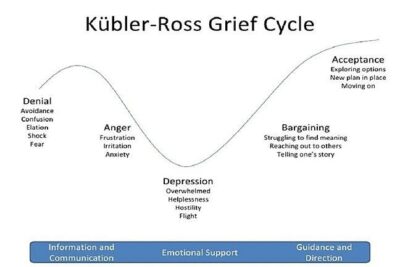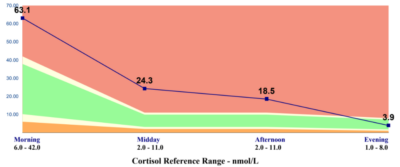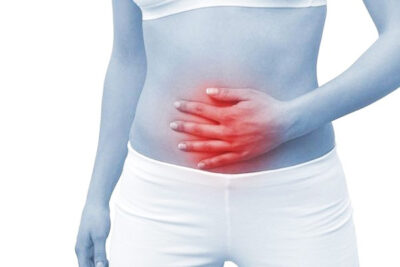
Ancient Ayurveda Recipes for Healthy Living
by Vanita Dahia What did our ancestors eat? One ancient

by Vanita Dahia
I couldn’t help but feel a deep ache in my heart when reaching out to a friend who has just lost her loved one with a heart attack. The hierarchy of emotions felt at the time transitioned rather slowly from blame, resentment, the shouldve’s, couldve’s and anger to a glimmer of acceptance.
It is often said that we can withstand all sorts of atrocities in life, but the ache in the heart is the most piercing and enduring. I could see her crashing into darkness, relentless and ferocious tasks to be undertaken as she was appeased by supportive family and friends with their courteous and empty promises.
She fought the helplessness and hopelessness as she cried herself to sleep. She was ready to give up has it not been for her young children who were now solely dependent on her. She has to be strong but was so tired of hearing “all will be OK”, or “you’ll get over it!”
No, it won’t! Nobody knows how horrible she felt.
I thought of Don Von Tress’s words in “Achy Breaky Heart” as I held her hand and allowed her to process the enormity of losses for her at that time.
Did the financial losses, and life’s stresses contribute to her husband’s heart attack?
Continued stress influences all organ systems and manifests as underlying causes of practically every disease.
Stress make the platelets sticky and promotes clot formation. This in turn causes coronary vasoconstriction, slowing the blood flow to the heart, slowing oxygenation to the heart and the heart need to pump harder and faster to keep the blood flowing to the brain.
Stress is the precursor to anxiety and depression. Anger, hostility and stressful type A behaviours have been linked to increased incidence of cardiovascular disease. (CVD)
Stress increases homocysteine, CRP and fibrinogen, all of which are associated with an increased risk for CVD.
Stress send signals to the brain to stimulate the adrenalin rush which mops up all the nutrients to combat the stress and react to it depleting the brain of essential vitamins and minerals. The brain gets starved and reaches out with an insatiable appetite for sugar.
Stress instigates a “sugar fix” which causes deep abdominal fat deposits that secrete inflammatory cytokines that promote insulin resistance and the cardiovascular complications of metabolic syndrome.
The bottom line is that grieving produces a number of symptoms that suggest involvement of the cardiovascular, respiratory, autonomic, and endocrine systems. Traumatic loss experiences may have a long-term impact on the body’s immune and nervous systems. (1)
Yes, there is a condition called broken heart syndrome. Broken heart syndrome may be misdiagnosed as a heart attack because the symptoms and test results are similar. In fact, tests show dramatic changes in rhythm and blood substances that are typical of a heart attack. But unlike a heart attack, there’s no evidence of blocked heart arteries in broken heart syndrome.
You could experience arrythmias, shortness of breath, cardiogenic shock or chest pain.
Be it through grief, or loss of a relationship or loved one, the heart suffers with an overwhelming sensation of being at a complete loss, flooded with sorrow and incapacitated with an aching heart.
Of course, some days may be bearable, and others bad, but mostly feel numb.
Once you transition from the lower levels of energy, you have to process by just accepting and letting go. Processing the grief is a powerful process of making some meaning the emotional paralysis.
Emotional turmoils use up all vital nutrients to fight stress and leave you empty and physically drained.
Many have hypothesised the stages of grief. Most experience crying, depression, difficulty sleeping, difficulty in concentrating, lack of appetite, and reliance on medications, even suicidal ideation.
In time, acceptance takes hold and the journey progresses slowly.

Grief is a medley of emotions that manifests as a chain reaction of biochemical changes in the body.
Biochemically, stress hormones and sleep get disrupted.
Stress goes up, sleep goes down
Cortisol, the body’s primary stress hormone spikes up and Melatonin, our sleep onset hormone together the sleep latency brain chemical GABA depletes. This leads to sadness, depression, exhaustion, anxiety, worry and insomnia.

Cortisol follows a regular diurnal pattern which peaks upon awakening and depletes as the day wears on. If cortisol is consistently high, the hypothalamic-pituitary-adrenal axis impacts the sympathetic nervous system to stimulate contractility – hence the diarrhoea, tummy aches, palpitations. This chain of events raises cortisol, adrenalin and drives down melatonin and GABA.
Elevations in Cortisol depletes DHEA, a youthful and vitality sex hormone responsible for synthesis of Testosterone, the libido hormone. Stress and grief will drive down sex hormone production impacting Hormone balance during menopause. Low levels of sex hormone directly impact neurotransmitters. For example, low progesterone, typically seen at peri-menopause also drives an anxiety neurotransmitter, GABA down.(2)
Women have the potential to feel anxious, fatigues and experience insomnia during this time.
Depletions in Serotonin and GABA manifests as feeling low, depressed, anxiety, sad and flat.
Elevations in adrenaline and noradrenalin, commonly called the catecholamines sets the stage for the “adrenalin Rush”, feeling wired and tired, irritated, irrational and agitated.
Take a deep dig into Neurotramitters to delve into the nuts and bolts of brain chemicals.

Grief triggers a chain reaction of overwhelm, aches and pains. The next range of biochemical insults is initiated with sympathetic nervous system overdrive, changes in appetite, aches and pains, headaches, and gastro-intestinal changes in the form of tummy aches, diarrhoea or constipation.
The emotional onslaught changes reactions and responses to become super sensitive, teary, jumpy and sensitive to noise or light.
The ability of the heart to repair and regenerate may be impaired in left untreated, and can damage platelets, blood flow, leading to dysfunctional cardiac cells, irregular heartbeats and perhaps a heart attack.
Not all high cholesterol can cause heart attacks. Her husband’s LDL levels were marginally high.
Her Dr had recommended a statin for cholesterol but his muscles ached with the medication and voluntarily stopped it. Having further dug into his bad cholesterol markers called, LDL-subfractions, I discovered that he had low LDL-subfractions but his triglycerides and VLDL (very low density lipoproteins) were high. This means that his “cholesterol” problem was driven by “SUGAR” commonly called dysglycemia which eventually leads to insulin resistance.
He was not active and loved his processed carbohydrates like cakes, pastries and artisan breads.
People think fat causes heart attacks. While it is true that trans-fats cause heart disease, it is mainly the massive amount of sugar and processed food that can cause that has caused the explosion of cardiovascular disease.
Dr Ross Walker, leading Australian cardiologist, in his book “5 stages of Health” emphasises the need to get 5 things right from the get go.
The clarity of biochemical connectedness of the feeling of grief, stress and anxiety and that of sex hormones, the heart and other organ systems is profound especially when identifying symptoms of imbalance.
Contact us if you would like to establish your chemical imbalances and learn how to manage these imbalances. Integrative medicine offer effective natural medicine to manage and balance your body chemistries.

by Vanita Dahia What did our ancestors eat? One ancient

Have you ever heard of anyone preventing their memory decline

How to Stop Indigestion and Acid Reflux by Vanita Dahia

Copyright © Vanita Dahia 2026. All rights reserved.